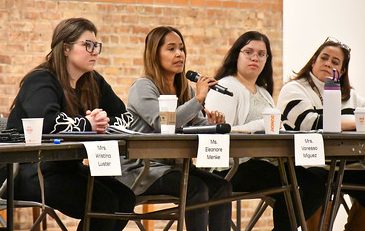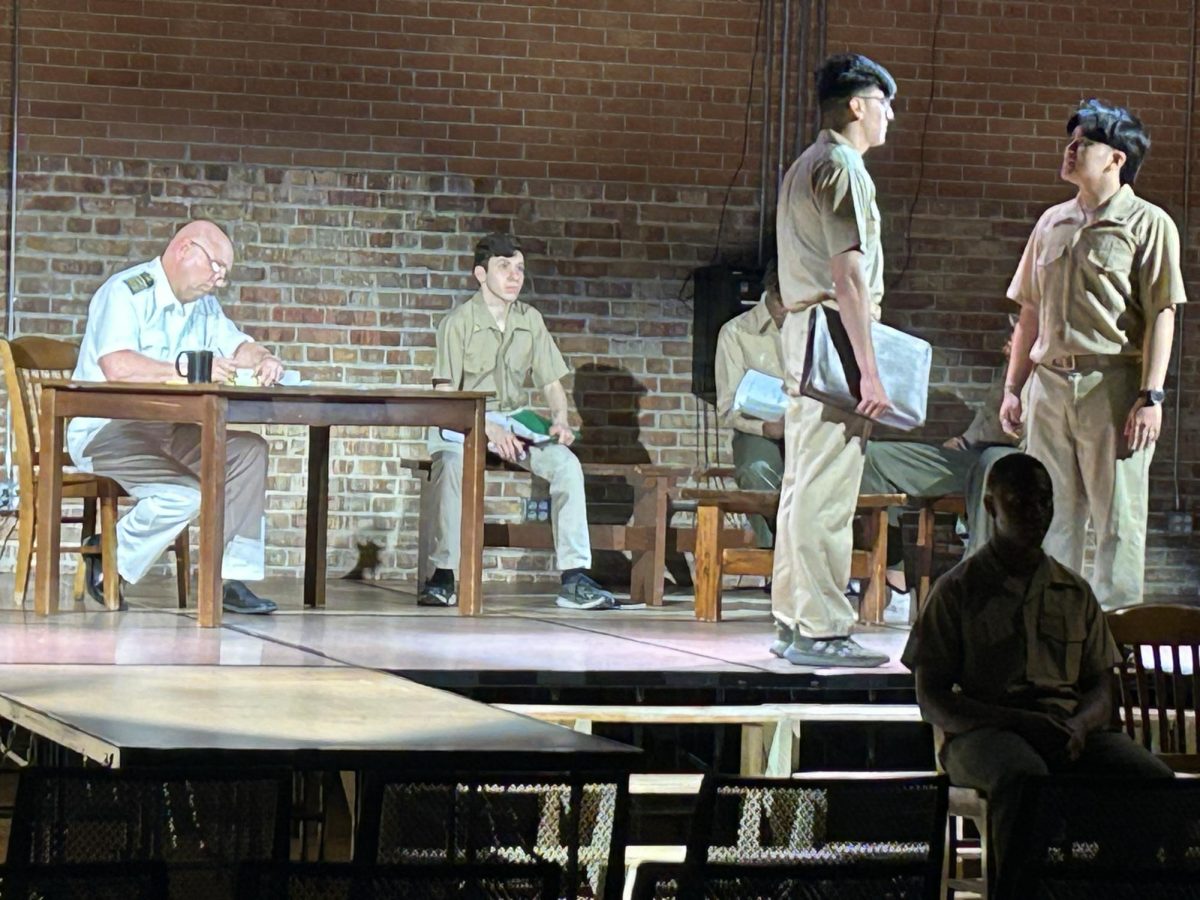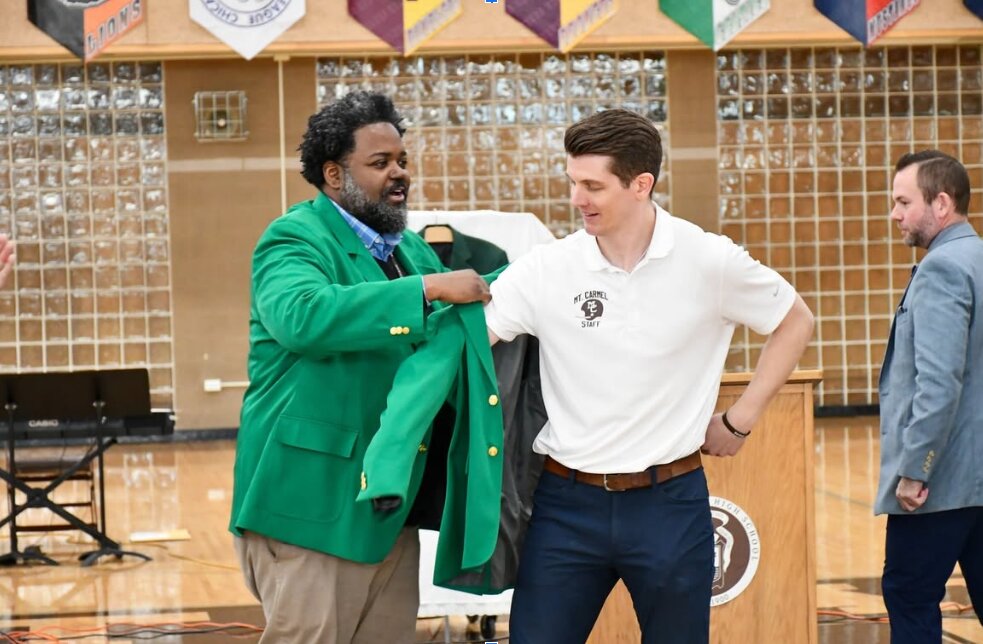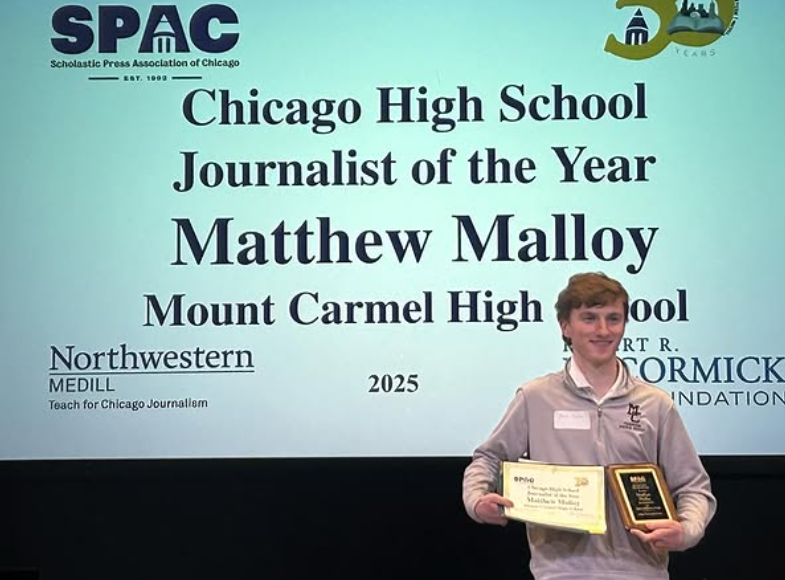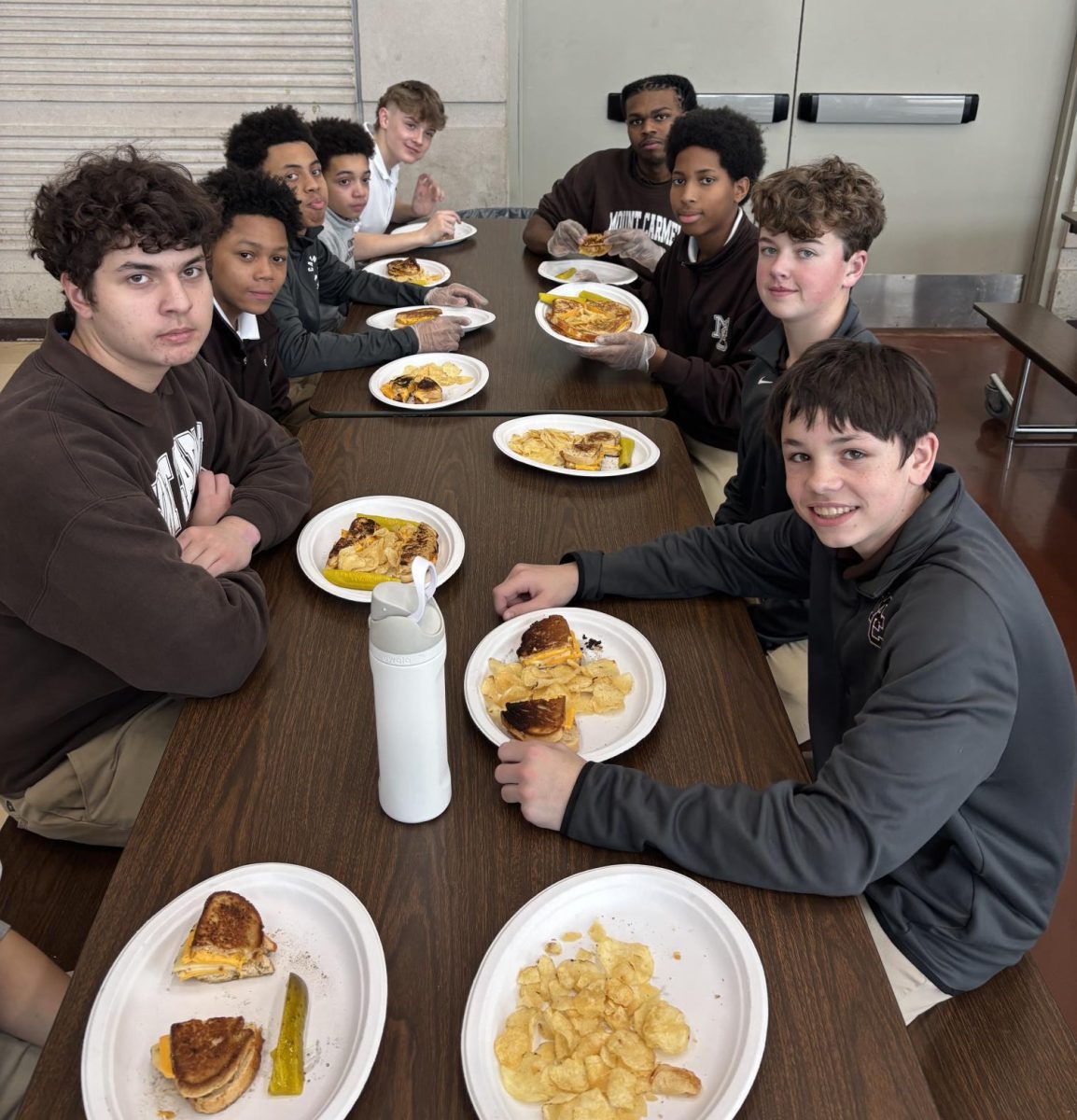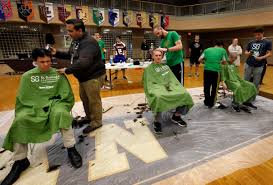Recently Mr. Tim Baffoe’s Honors English II class, which this year is focused on issues of masculinity and friendship, began working on an assignment aimed at serving as a fitting end for Women’s History Month–a Q&A panel of women faculty members at Mount Carmel.
The panel took place on Monday, March 31, in the new Barry-Hughes Performing Arts Center. Ms. Erin Cronin, Ms. Rachel Jackson, Mrs. Julie Chappetto (H), Mrs. Margaret Joyce-Moroney, Mrs. Kristina Luster, Ms. Eleanore Menke, Mrs. Vanessa Miguez, Ms. Jennifer Ramirez, Mrs. Jennifer Smola, and Mrs. Valentina Sorescu volunteered to join the panel.
Students from Mr. Baffoe’s class were the ones that created questions for the panel, but there were also many other students that came from other classes to listen to perspectives on topics such as the challenges women face and toxic masculinity.
“I think our female faculty members did a great job,” Ms. Cronin said. “I loved everybody’s comments on the panel. I think they were very poignant, and they all brought something different to the table.”
Ms. Cronin began the discussion by answering a question that asked if women at MC feel they have to alter their behavior in order to achieve success in the workplace.
“I will tell you, at 46 years old I do not alter my behavior,” she said. “I feel very confident in who I am. I don’t come here to make friends. I come here to make a living, and I come here to make a difference for you boys. Pleasing any male counterparts is not my agenda whatsoever. I hope that my male counterparts respect me, and respect what I’m trying to do.”
Mrs. Smola continued with an example of unequal treatment she experienced as a woman teacher.
“I’ve been here for 16 years, and my first year was rough,” she said. “I had a master’s degree in education, and they [her junior and senior students] were studying AP Statistics. When I had told my lovely colleague that I wanted to teach it, he didn’t believe I knew the material. I was shocked that I had to prove that to him.”
There was more discussion concerning the challenges women face as well as issues of masculinity and the women’s perspectives on that. After giving her own example of observing toxic masculinity, Mrs. Miguez wanted to make it clear what she wanted students to take away from the panel.
“When you are in a professional setting or even a social setting, you should always treat people as your equal,” she said. “If you have something to say, you can get your point across without having to be bigger and stronger and tougher and louder. That doesn’t always work.”
Another aspect of toxic masculinity involves the way people can view women, which is something on which Ms. Ramirez commented.
“I hear students talking about how a girl is shaped this way or she is shaped that way, and I think that’s just a very toxic way to look at things,” she said, “especially being in a all-male Catholic private school. Not only does that make me uncomfortable, but it also makes me question what am I doing wrong to where my students feel like it’s okay to talk about anyone in this manner.”
Mrs. Joyce wanted to emphasize that it is not just the objectification of women that needs to be corrected, but also the belief that women cannot have male friends.
“I think it’s toxic masculinity because it shows the idea that men are superior,” she said. “They can be friends with anyone that they choose. It shows that women are the lesser, and we can only be friends with women because men only want one thing from us, utility or pleasure.”
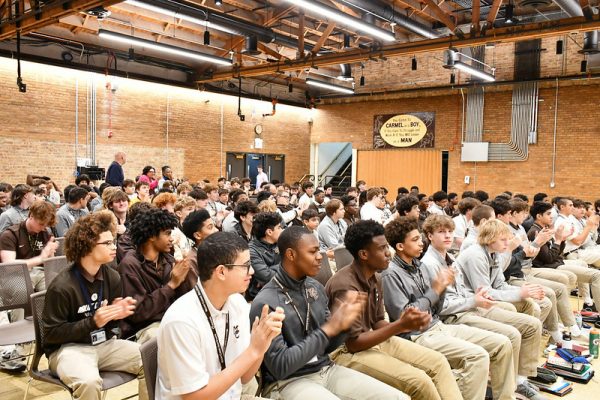
The students involved in Mr. Baffoe’s Honors English II class put together the questions panel members answered prior to the Q&A. During this process, they were fully invested in the topic at hand.
“In a male-dominated environment, you want to have female input,” Honors English II student Mihailo Popovic said. “It’s very valuable to get the input of a woman in there because it’s the opposite gender, it’s from a different point of view, and experiencing it on the receiving end of any sort of bad treatment.”
The students present in the audience also recognized the importance of the topics discussed in the Q&A.
“I think that there is often a lack of emphasis on the way that men interact with women at Mount Carmel simply because it is an all-boy school,” senior Leonard Siegal said. “In my mind it’s simply a facet of being in a same-sex environment that you don’t understand how to interact with people of the opposite gender very well. If we don’t take steps to mitigate that by having things like the Q&A panel, then it can lead students to be less conscientious and less aware of their actions and words relating to other people.”
Considering both the students and the teachers involved greatly enjoyed the panel, it is very well possible another could take place in MC’s near future.
“I would like to repeat this one,” Mr. Baffoe said. “Perhaps there could also be panels on other issues, too. There could be a panel on diversity having members of the faculty who are African American or Hispanic or otherwise.”
Overall, the MC Women’s Panel Q&A provided an important way for students to engage with perspectives other than their own and succeeded in providing a fitting end to a Women’s History Month.
“I think it was a beautiful end to Women’s History Month,” Ms. Cronin said. “There are 22 female staff members, over 60 male staff members, and then [almost 600] male students. When you think of those numbers, and think of where we [women] land in the building, it takes a strong woman to be amongst all these men here, but I couldn’t be more blessed to have this position.”

